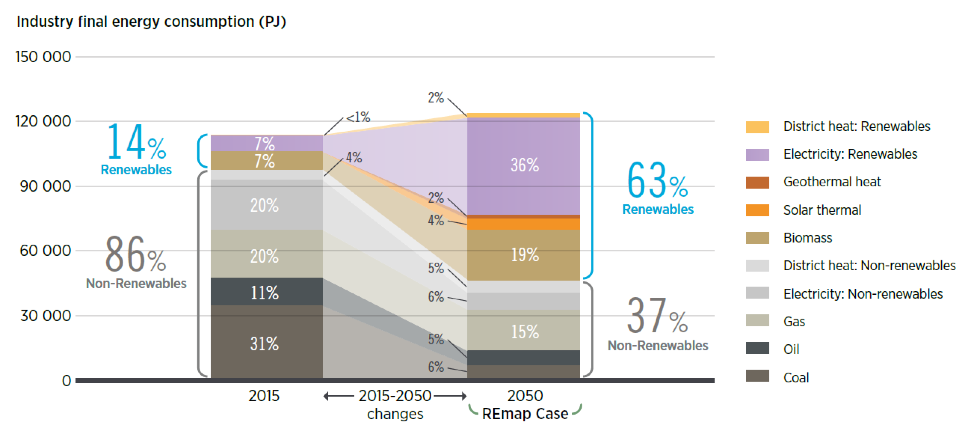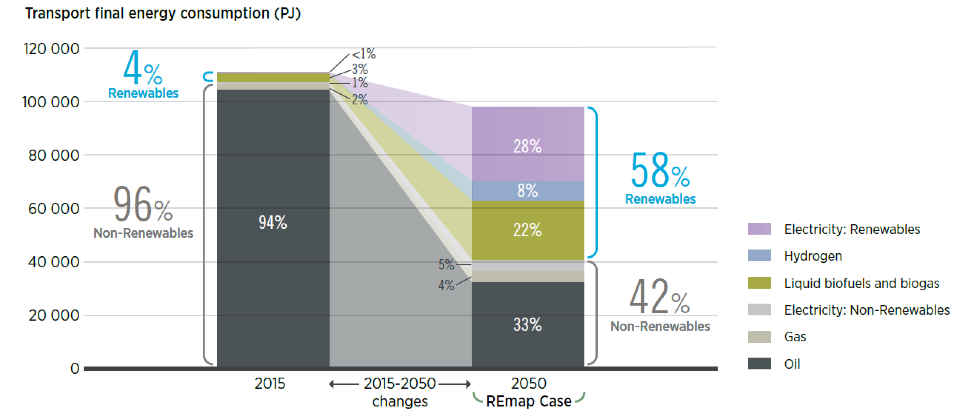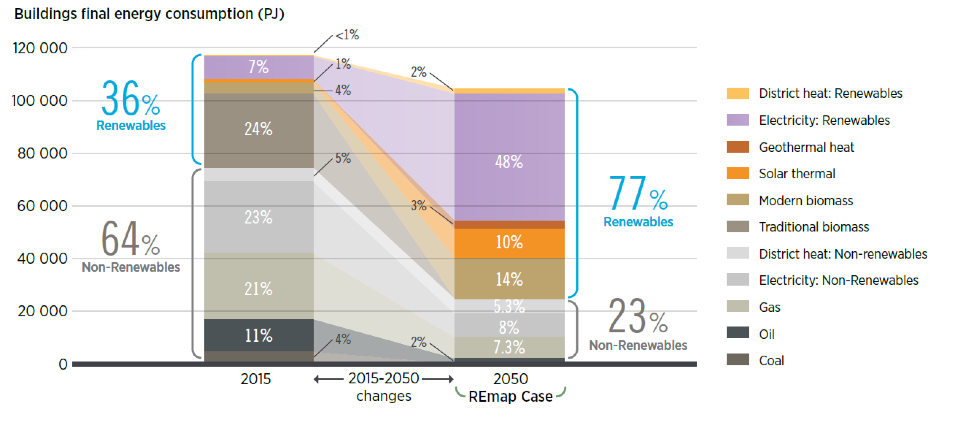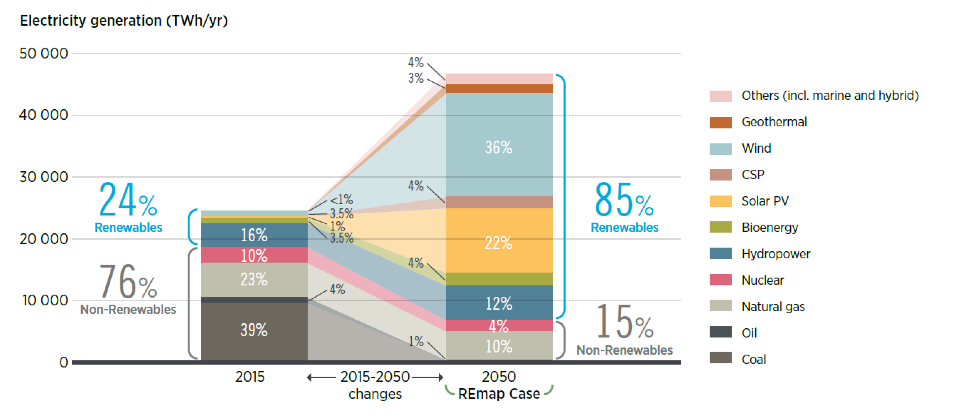The share of RES will continue to grow in all consumption sectors – IRENA
RES is a basic tool for achieving the global goals set by the Paris Climate Agreement. We have several arguments:
- It is economically, socially and environmentally beneficial.
- This is effective.
The global energy system must undergo a profound transformation. From a system that is largely based on fossil fuels to one that increases energy efficiency and is based on RES. Such a global energy transformation is considered the culmination of the “energy transition” already taking place in many countries. It can make our world more sustainable, healthy, and harmonious. Energy efficiency and RES are the basis of an energy transition. Together, they can provide more than a 90% reduction in CO2 emissions related to energy consumption. The share of RES and energy efficiency should increase in all sectors.
In general
The global share of RES should increase from about 15% of the total primary energy supply (TPP) in 2015 to about two-thirds by 2050. To achieve climate goals, the energy intensity of the world economy will have to be reduced by about two-thirds by 2050, reducing the total supply of primary energy this year slightly below the level of 2015.
This can be achieved despite significant population growth and the global economy by significantly increasing energy efficiency.
Industry
By 2050, the use of RES in the industry should increase more than fourfold. Biomass and electricity from RES will play a significant role.

Transport
In the transport sector, the transition to RES is projected to be the most difficult. Even in 2050, 42% of the sector will provide fossil fuels. The sector is facing a profound transformation.

Energy supply of buildings
The share of modern RES in the building sector will grow significantly. Up to 3/4 of the energy consumption in buildings can be supplied from RES. Electricity can supply almost 56% of the energy demand in the sector.

Electricity generation
Electricity production will almost double with 85% of electricity supplied by RES. By 2050, all countries can significantly increase the share of RES.

IRENA estimates that RES can account for 60% or more of the total final energy consumption (TFEC) of many countries. For example, China may increase the share of RES in energy consumption from 7% in 2015 to 67% in 2050. In the EU, this share can increase from 17% to over 70%. In India and the United States, RES can increase to two-thirds or more.
According to the materials: GLOBAL ENERGY TRANSFORMATION, International Renewable Energy Agency (IRENA) 2018.


